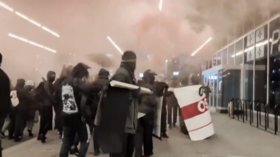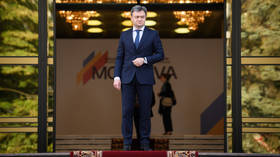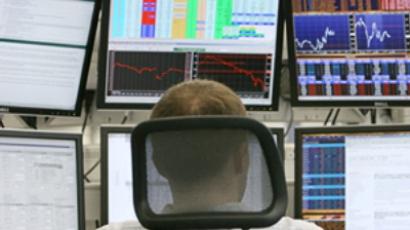Global havoc hits Russian markets
The Russian markets have weathered another week dominated by bad news, amidst continuing turmoil on the international, as well as domestic front. Meanwhile, the government and Central Bank have stepped up their efforts to protect the wider economy and the
Friday saw oil slump to the low $US 60 per barrel range adding to the pressure on the Russian economy.
Another week of huge falls on the financial markets followed by a big response from Russia’s government. It’s already committed $US 200 billion – equal to 15% of GDP – to try to fund the economy.
VneshEconombank stepped in to distributing funds to the broader economy, as the Moscow Interbank rate climbed above 20% on Monday. The rate is down but banks are still wary of lending.
And instead of feeding the rubles the government has lent them, into the economy, Yulia Bushueva, Chief Strategist, Unicredit Aton says banks have been converting them into dollars, contributing to the rouble's fall.
“I think its an important fact that they asked the banks to stop convert rouble assets to dollar funds, and exporting them to international subsidiaries. Because what happened is that the Central Bank was pumping liquidity into the system, but it only puts additional pressure on the rouble so that was negative. Statistics show that it happened not only with foreign banks but also with VTB , one of the key state owned banks that should support the system.”
The Central Bank supported the rouble on Monday as the dollar surged against major currencies. Over the week, the Central Bank’s dollar rate dropped by almost one rouble. With more countries announcing they are facing recession, commodity prices continued to slump and late in the week oil closed in on the low $US 60 per barrel range despite OPEC announcing a cut of 1.5 million barrels per day. David Azerkoff, Chief Strategist for Russia at Renaissance Capital says that more stimulus can be expected.
“Governments have done a huge amount to support the banking system and the financial sector and they are now addressing the needs of the real sector. We’re seeing another fiscal stimulus package in the U.S., we’re seeing more help like that in the UK and other parts of the G7, and I hope we’ll see an acceleration of some of the Governments infrastructure spending plans in Russia. That would be a real positive step.”
The real economy is struggling. Rail operator RZD, which represents 80% of cargo transport, is slowing, according to its president, Vladimir Yakunin. Russian markets dropped over 10% before the regulator stopped trade. The RTS and Micex both added to their falls which see Russian stocks down more than 70% since their peak in May.













